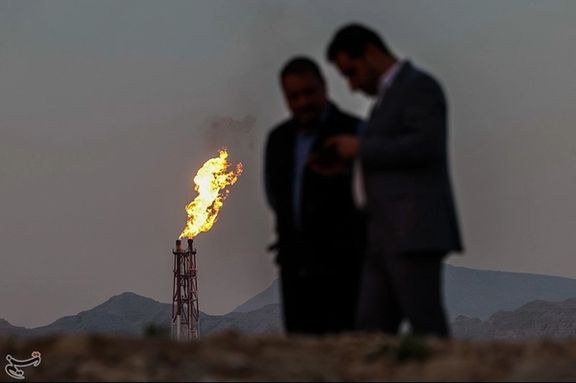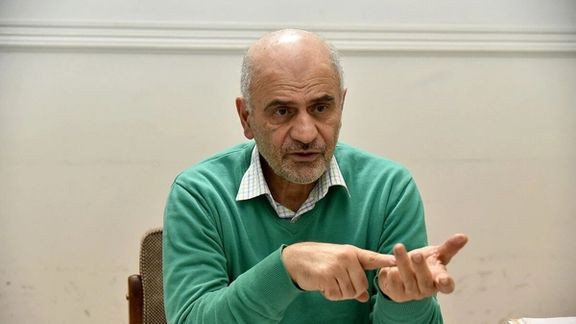Why Iran Faces Economic Crisis Despite Higher Oil Exports

A prominent Iranian economist, highlighting corruption and mismanagement, has questioned the persisting large budget deficit despite increased oil exports.

A prominent Iranian economist, highlighting corruption and mismanagement, has questioned the persisting large budget deficit despite increased oil exports.
In recent months, Iran’s oil shipments have hovered around 1.5 million barrels a day, substantially higher than in 2019-2022 period, yet government finances remain in shambles and the national currency is near its historic lows. One US dollar now buys more than 510,000 rials, or twice as much as in mid-2022, and 12 fold more than in 2018.
Farshad Momeni, a prominent professor of economics in Tehran sharply attacked the government in a seminar this week for the economic chaos reigning in the Islamic Republic. “The government and parliament are passing the ball to one another, claiming that, on the one hand, we had the highest-ever oil sales in the post-JCPOA period, and on the other hand, we are facing one of the worst financial deficits this year! This is by no means a good sign,” he warned.
Even if Iran offers China, its main customer, steep crude oil discounts and earns just $60 per barrel, annual earnings should exceed $30 billion, more than triple the 2019 income.

Iran’s oil exports dropped from a high of around two million barrels per day to as low as 300,000 in 2019-2020 after the United States withdrew from the JCPOA nuclear deal and imposed ‘maximum pressure’ sanctions.
The seminar where Momeni spoke dealt with oligarchical corruption in Iran, where 80 percent of the economy is controlled by governmental or religious entities, and political connections determine who is put in charge of large companies. The same principle of insider influence peddling works in domestic and international trade. Well-connected individuals and groups compete for special government favors, permissions, and facilities to monopolize a given market or sector.
Momeni argued during his remarks that the government and parliament lack a rational and scientific approach to the economy, especially over fundamental budget issues.
"It means that we are currently experiencing the phenomenon where hundreds of times, under the banner of very good causes, very bad deeds have been committed, and later it becomes clear that a mixture of ignorance, corruption, and sinister motives have been behind these issues,” Momeni argued.
Building on his argument, the economist warned about a shady government plan approved this year to sell public properties to the so-called private sector. What the government says are private investors are mainly regime insiders with money and connections, who can buy up valuable land and other assets at below-market prices.
Critics see the hasty plan to sell off government properties and companies as a way of "plundering Iran’s resources in the course of liquidating the country’s national assets."
Conservative news website Alef quoted Ahmad Tavakkoli, the head of the Iranian NGO, Transparency and Justice Monitor, as saying in a September letter to lawmakers, the heads of the three powers of the government and the privatization board that the plan "should be totally rejected."
In the past 15 years, most of government privatization deals have proven to have been nothing more than gross cases of corruption that have come to light repeatedly, despite tough controls over the media.
Momeni even warned about a fate for Iran similar to the Soviet Union. "If you do not want to learn from Iran's experiences, at least you should look at the experience of the Soviet Union's collapse! In a government that claimed to be communist, there were mafias that controlled the informal economy."
Lack of economic freedom and competition in Iran is backed by multiple studies. Just recently, the Fraser Institute in its latest Economic Freedom of the World report, measured the extent to which a country's policies and institutions support economic freedom, with data from 2021 serving as the basis for the 2023 assessment.
With a paltry score of 4.53 out of ten, Iran shares the lowly position with Libya, outpacing only Yemen, Sudan, Syria, Zimbabwe, and Venezuela in terms of economic liberties. The other low-ranking countries all have “brotherly” ties with the Islamic Republic.